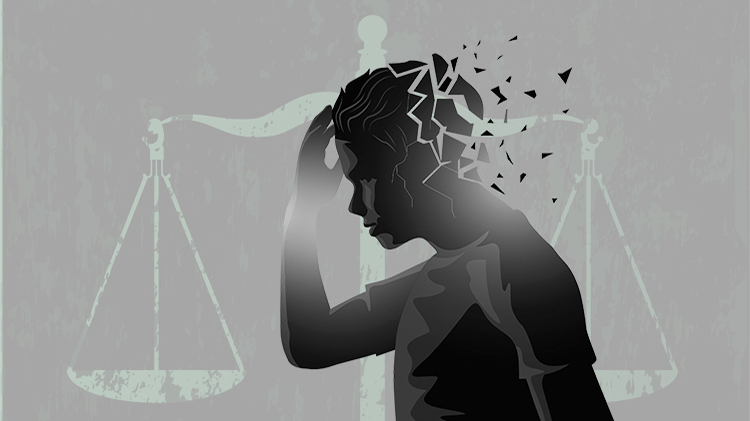What Constitutes Sexual Battery Charges Under Penal Code 243.4 in California?
A surprising number of individuals face sexual battery charges Penal Code 243.4 each year. For example, in recent years, California has reported thousands of cases involving allegations of inappropriate touching, many stemming from misunderstandings, unclear boundaries, or lack of consent. These charges can have lasting consequences, making it important to understand what the law actually says.
The law is very specific in terms of what actions are considered illegal and the intent behind those actions. Whether you’re someone wanting to avoid trouble, or someone dealing with an accusation, knowing the details can make all the difference.
In this blog, we’ll cover what sexual battery means under this law, what actions can lead to these charges, how severity is determined, and what steps you can take if you’re involved in a case in any way.
Defining Sexual Battery Under Penal Code 243.4
Core Elements of the Crime
Understanding these elements helps clarify what actions are criminal under this statute.
1. Touching
The law centers on touching—specifically, unwanted physical contact with someone else’s body.
2. Intimate Parts
According to the law, “intimate parts” include the sexual organs, anus, groin, buttocks, or the breast of a female. Touching these areas without consent is central to the charge.
3. Lack of Consent
This means they did not agree to it freely. Consent must be explicit and continuous; it may be unlawful to continue if it is withdrawn at any time.
4. Intent
There must be a specific reason behind the contact—such as sexual arousal, sexual gratification, or to abuse or humiliate the other person.
Key Legal Terms Explained
Willful Touching: It doesn’t have to be violent or forceful; it just has to be intentional.
Lack of Consent: Consent can be missing in various ways:
- It wasn’t given at all.
- It was given and later withdrawn.
- The person was unable to consent due to age, intoxication, unconsciousness, or mental condition.
Sexual Arousal, Gratification, or Abuse
This part looks at why the touching happened. Was the goal to satisfy a desire, humiliate someone, or cause harm? This intent matters legally.
Factors that Can Influence the Severity of Charges and Penalties
The seriousness of sexual battery charges under Penal Code 243.4 depends on several factors. These can determine whether the case is treated as a misdemeanor or a felony.
1. Prior Offenses
If someone has past convictions for similar crimes, penalties can be harsher. Courts may view the person as more dangerous or less likely to change.
2. Victim’s Age
If the victim is a minor, the law imposes stricter penalties. Special protections are in place for individuals under 18, and charges often become more severe.
3. Use of Force or Restraint
If the accused used physical force, threats, or held the victim against their will, the charges could be upgraded to a felony.
4. Relationship Between the Parties
Certain relationships like those between teachers and students or employers and employees can also impact how the case is handled. These positions of power can lead to enhanced penalties.
What to Do If You Are Accused of or Are a Victim of Sexual Battery
For Those Accused
If you’re accused of sexual battery, how you respond early on can affect your future. Here’s what to do:
- Don’t get in touch with the police without a lawyer’s advice.
- Remain calm and polite. Avoid confrontation.
- Hire a criminal defense attorney immediately. They can help protect your rights and explain your options.
For Victims
If you believe you’ve been a victim of sexual battery, it’s important to act quickly:
- Get to a safe place. Your safety comes first.
- Seek medical care and preserve evidence. Avoid bathing or changing clothes if possible.
- Report the incident. You can go to the police or contact a sexual assault support organization for help.
- Talk to someone. Counseling and legal support can help guide you through the next steps.
The Importance of Legal Counsel
For the Accused
Legal support is not just helpful, it’s necessary. A criminal defense attorney can review the facts, handle the communication with law enforcement, and help build a defense that considers all sides of the situation.
For Victims
A lawyer can help victims navigate their rights in both criminal and civil systems. They may assist with protective orders or filing a lawsuit if appropriate.
Final Words
Understanding sexual battery charges is vital for everyone. These laws are in place to protect people from unwanted and inappropriate contact, but they can also be complex and open to misinterpretation. Whether you’re someone who’s been accused or a person who believes they’ve been harmed, knowing your rights and responsibilities under the law is the first step toward justice and resolution.
If you ever find yourself involved in such a case, act carefully, seek proper legal guidance at The Nieves Law Firm, and make informed decisions moving forward.











